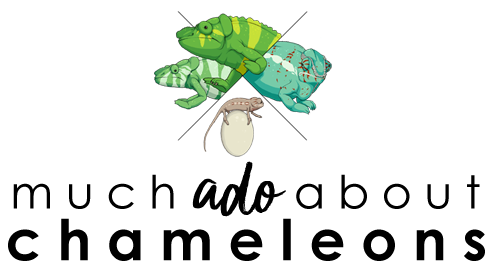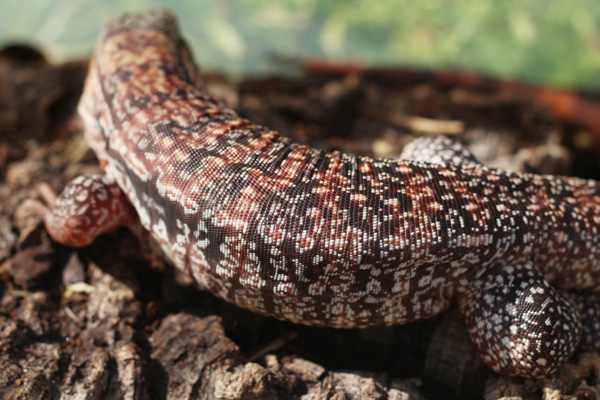QUARANTINE
As a fresh wild caught animal the most important thing is to quarantine. This is something I haven't touched on in depth yet, but this is a good time to highlight it. This is something we should all do any time we get a new reptile, but particularly with any WC animals, as we just don't know what diseases or parasites they may be harboring. Ideally, you want to quarantine an animal a minimum of 60 days, which would give most normal illnesses or parasites time to incubate and show themselves.
TREATING FOR PARASITES
You can pretty much be certain that any WC animal you bring into your home will be loaded with parasites and other nasties. It's important to treat for these so A, your other pets don't catch any of it, and B, so the parasites don't take over your new pet while he or she is dealing with the stress of their new home. Parasites aren't usually a problem in healthy animals, there's a certain interest on the part of the parasite to live in relative harmony with its host. But when you put that animal through the horror of importation, trading hands with a dealer, ending up in someone's house, and then learning to live in a cage indoors the stress from it all can weaken their immune system and parasites can become a danger.
So, it's time to do a fecal. Thankfully, you can have this done even in the first days of having your new animal since all you need is their poop. So scoop up a fresh sample and take it to the vet (or store it in a zip-lock bag in the fridge until you can go to the vet) and they will usually check it for about $20.
 If (when) it comes back positive, your vet will want to see the chameleon so they can prescribe anti-parasitic meds. In the case of Thaddeus, his results came back positive for:
If (when) it comes back positive, your vet will want to see the chameleon so they can prescribe anti-parasitic meds. In the case of Thaddeus, his results came back positive for:
1. Giardia
2. Roundworms
3. Trichomonas
So he was prescribed Panacur (a very common anti-parasitic) for 5 days. At this point we have to wait a week after treatment was over, bring in another fecal, and test again. Ideally the next fecal will be clean. If not, we will continue with a second round of Panacur.
HYDRATION & NUTRITION
Particularly with chameleons, the most important thing you want to focus on while they acclimate is water. So water, water, water. Allow the cage to dry out between mistings but you definitely want to focus on providing water for long sessions and perhaps even having a dripper going most of the day. Thankfully with Thad, he had been in the care of someone else for a month and did not need as much heavy rehydration but it never hurts to provide lots of water to an animal adjusting to its new home.
Food is also important. Thad was a little thin when he first arrived but thankfully started eating the same day. Since then he has not stopped eating and has put on 20 grams in over a month. I can see his bones and musculature less and that's a great sign.
ACCLIMATING TO CAPTIVITY
In a perfect world I would have huge walk-in cages outside and let my chameleons acclimate outside, where they would be most comfortable. Unfortunately, I don't, and they suddenly find themselves living in a bedroom/living room in AC and with people. The first two weeks I kept Thad in a large screen cage, as he was small and I could keep him better controlled. But as soon as I saw that he was eating and drinking well I moved him onto a large, tall free range. I think free ranges are a good idea with WC chameleons as they don't have to deal with a cage, so it's a tiny bit more natural for them. With plenty of foliage and branches it's typically a good environment.
Thad did not take to his free range immediately, however, and kept trying to get down and walk away. But the room he is in is chameleon safe so I don't discourage him from exploring if he really wants to. Meanwhile I will sit in the room with my laptop and work online quietly, and this lets him realize that he lives his life and I don't bother him. I also offer food by hand, and between one thing and another he is already actively eating from my hands and is less and less nervous around me every day.
__
We will see what the next couple months bring with him as he continues to settle in. Meller's chameleons are delicate and can still crash even if they've been stable for weeks. However, for now he is doing well and I have hopes of introducing him to Guinevere when his quarantine period is over in another month. There is no guarantee that these two will get along just yet (if at all) but I will approach the subject slowly and see how they do.
Hopefully this is the first step in putting together a colony of Meller's chameleons and starting a captive breeding project. This is such an amazing species and there aren't enough people successfully breeding them yet. So fingers crossed that with patience, experience, and a little luck this project can be successful.















ReplyDeleteเล่นง่ายได้เยอะ joker123 slot online แจกโบนัส
https://www.slotxd.com/jokergaming123